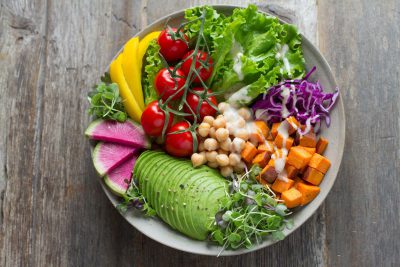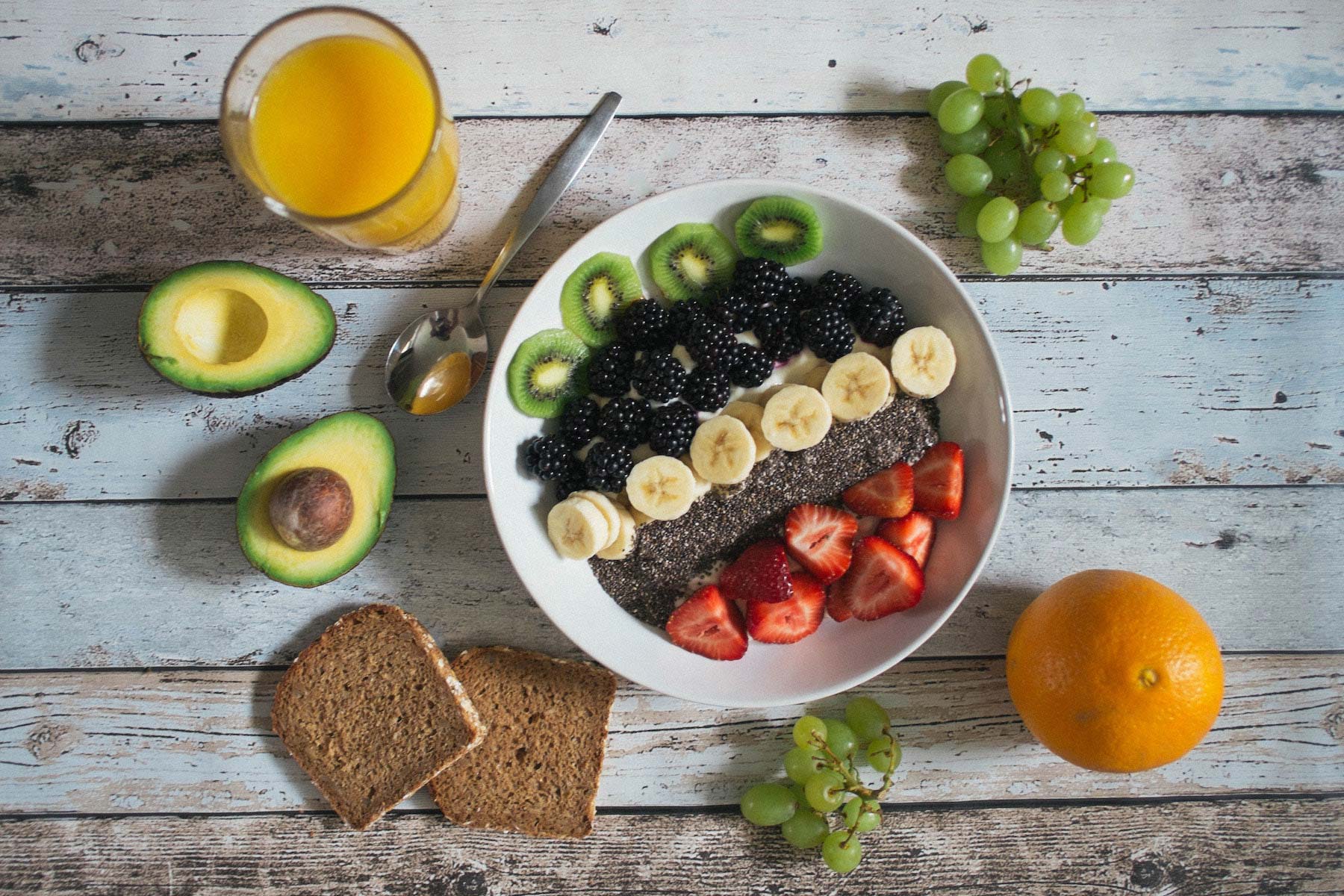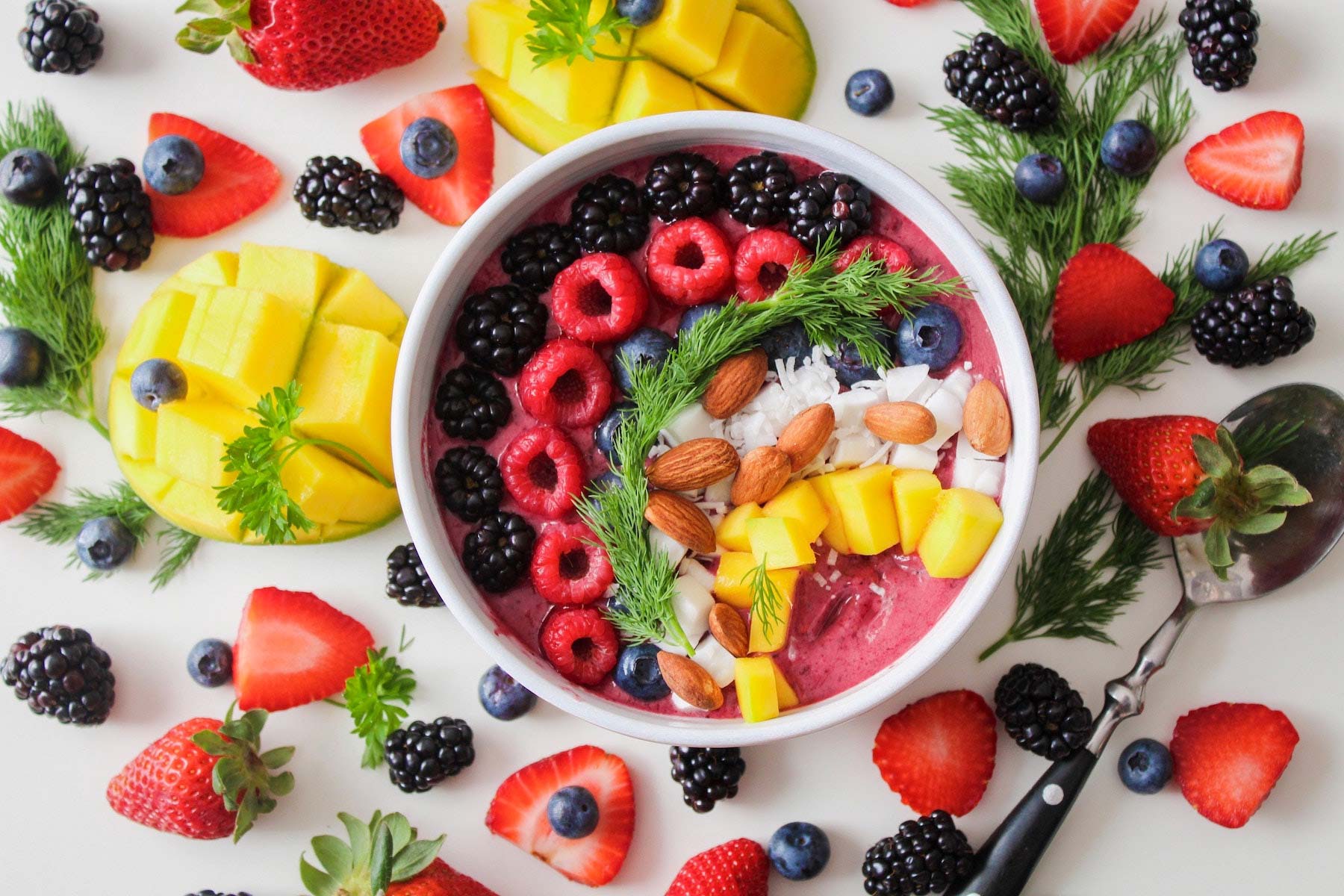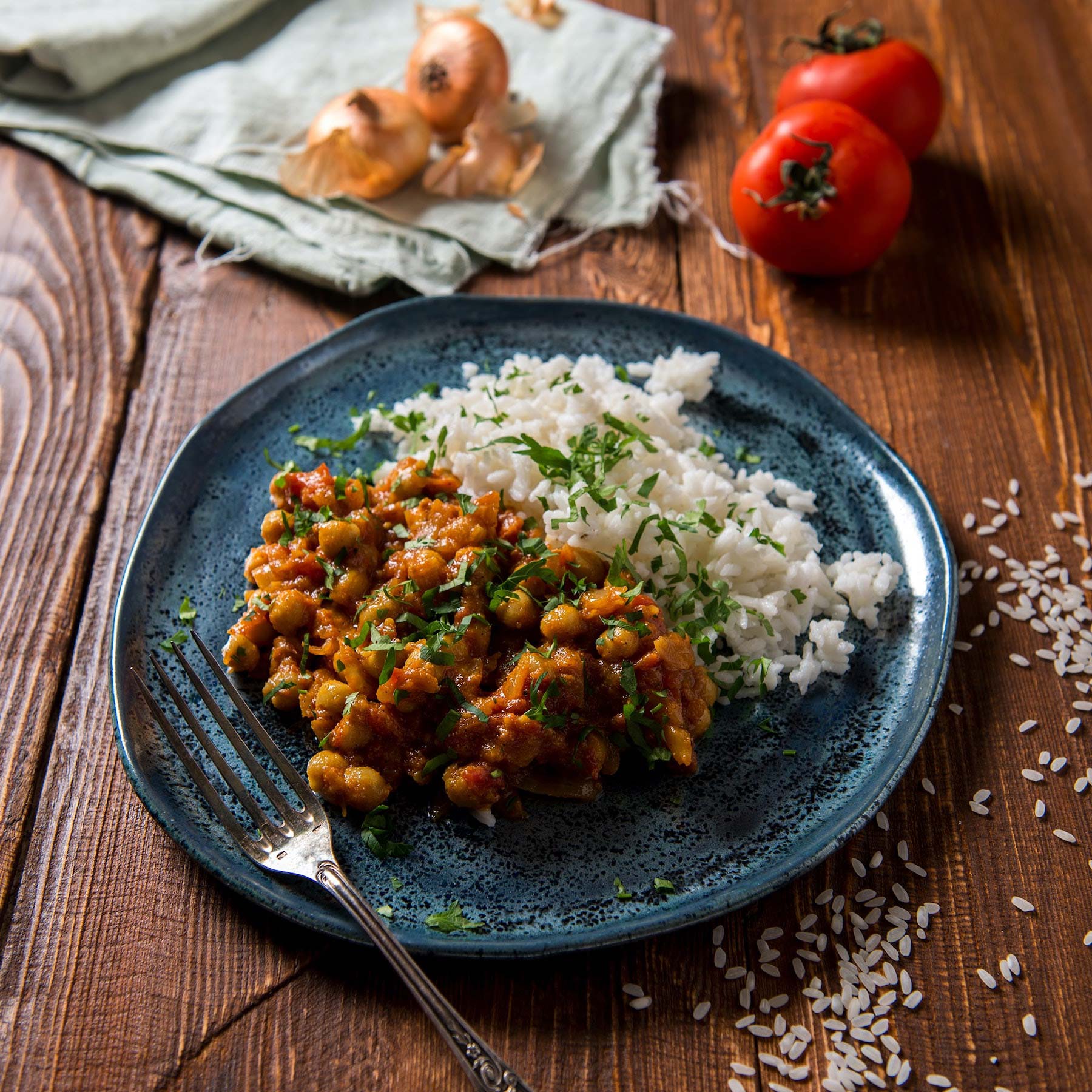Our brains are incredibly clever: they work to ensure we have sufficient calories to survive and then they defend that weight, making it almost impossibly hard to lose it again. The global diet industry is worth around $200 billion, and much of those profits come from repeat custom, because for most people, diets don’t work over the longterm. And, worse, many heavily promoted fad diets actually risk our health. But, if we can create new habits and build new routines, and enjoy them so much that we can sustain them for the rest of our lives, we can make a real difference. Not only can a whole food plant-based way of eating promote weight loss, it can boost our health in myriad ways.
What is a Healthy Weight?
There is much discussion about this. Clinicians often determine healthy weight by the Body Mass Index (BMI), which is arrived at by dividing an adult’s weight in kilograms by their height in metres squared. It’s far from perfect. In fact, the whole concept of BMI was invented and developed 200 years ago by a mathematician who was interested in defining ‘the ideal man’. Using data collected primarily from white European men, he made his calculations but BMI was never intended to indicate our level of health, and we should not rely on it to do so. Our view is that a healthy weight is one that does not limit our lives and lifestyles, and we don’t need scales to tell us what that is!
What Is A Plant-Based Diet?
This is a diet that is made up entirely of plants. It doesn’t mean just eating vegetables, though. It means eating legumes, nuts and nut butters, seeds, fruits, breads, salads, herbs, spices, pasta, rice and other whole grains, and foods such as plant milk and yogurt, or other replacement products including plant-based burgers, hot dogs, and ground ‘beef’.
Can You Lose Weight Eating a Plant-Based Diet?
Absolutely. Lots of people find that they do, though it depends on the foods you choose. Fries are vegan. Donuts can be vegan. But you wouldn’t expect to lose weight if your diet was made up predominantly of these. But if we crowd our plates with fresh plant foods—cooked or raw, and from every color of the rainbow—not only will we be gaining important micronutrients that keep us functioning optimally, we are likely to lose some weight, too.
And the great thing is that there are so many excellent reasons to eat this way that people find they are highly motivated to stick with it. And that is the three-part secret to success:
- being motivated to make longterm changes
- really enjoying the food; and
- loving how it makes us feel.
What Does Recent Research Say About Plant-Based Diets?
Researchers from the Physicians Committee for Responsible Medicine (PCRM) working with Dr. Kitt Petersen and Dr. Gerald Shulman of Yale University conducted a 16-week study of 244 larger participants who wished to lose some weight.
For four months, one group ate a low-fat, plant-based diet in serving sizes consistent with their usual habits. The second group was a control group and did not change their dietary habits at all. At the end of the study, the plant-based diet group experienced an 18.7 percent increase in their after-meal calorie burn and had lost an average of 14 pounds.
This is just one of many studies that suggest switching to a whole food plant-based diet can lead to significant weight loss. But, for many people, improving health does not rely on losing weight, and a plant-based diet can make a world of difference to our health and wellness regardless of our weight.
Health Benefits Of A Plant-Based Diet
Research is consistently showing that people who eat a plant-based diet may experience profound health benefits and even live longer! Those who become vegan often say that they notice health benefits in the short-term too, from increased energy, better sleep, improved digestion, and fewer respiratory problems and allergies. For some people, the effects are startling and include a reduction in symptoms of arthritis, period pain, and even depression. But it is in the long-term that the plant-based diet really works its magic.
Lower Risk Of Heart Disease
There is strong evidence that a plant-based diet rich in fruits, vegetables, legumes, and whole grains can be very beneficial in managing, halting, and even reversing stroke, coronary and vascular heart disease, and peripheral arterial disease. That is why a vegan diet is at the center of innovative programs aimed at reversing heart disease.
Prevent Cognitive Decline
Neurologists Dean and Ayesha Sherzai have developed a five-point program that can prevent Alzheimer’s in 90 percent of people, while in the remaining 10 percent who have a genetic predisposition to the disease, it can delay onset by up to fifteen years. For those already experiencing symptoms, progression can be slowed and even reversed. Eating a plant-based diet is at the heart of their NEURO program. Watch the doctors explain how this works.
Reduce Risk Of Cancer
All processed meats cause cancer. All red meat ‘probably’ causes cancer. Eating a plant-rich diet has been shown to reduce the risk of certain cancers, notably bowel cancer, while evidence suggests that consistently drinking as little as one cup of dairy milk per day can increase your risk of breast cancer by up to 50 percent.
Studies also show that vegan diets are associated with a decrease in the incidence of all cancers combined, and specifically the risk of female-specific cancers, when compared with non-vegans.
Reducing Risk Of Diabetes
A 2003 study funded by the NIH, tested thousands of patients with type 2 diabetes and found that a plant-based diet controlled blood sugar three times more effectively than a traditional diabetes diet. Within weeks on a plant-based diet, participants saw dramatic health improvements: They lost weight, their insulin sensitivity improved, and their HbA1c levels dropped. In some cases, you wouldn’t even have known they’d had the disease at all.
What Are The Potential Disadvantages Of A Plant-Based Diet?
Like any change in our behavior, it can take a little time to adapt, and to learn new ways of cooking and eating. And while it’s not difficult to get all the nutrients you need, it is essential that those who are new to the diet are aware that they can’t just remove animal products and not think about how to replace some of the nutrients they contain. It can also take two to three weeks for our digestion to fully adapt to a diet that is generally much higher in fiber.
How Much Weight Can You Lose On A Plant-Based Diet?
We would caution against focusing too much on the numbers on the scales, as those figures do not represent good health, and we recommend reading Sandra Aamodt’s book Why Diets Make Us Fat for anyone interested in this issue. In it, she puts forward a compelling argument that dieting is a strong predictor of future weight gain.
But switching to a whole food plant based diet—as the above studies have shown—can have a significant impact on weight. It’s not a diet as such. It’s a way of eating that promotes great health, and may reduce weight, too.
Plant-Based Weight Loss (AND GREAT HEALTH) Program
Some basic principles of losing weight through eating a plant-based diet include:
- Eat a variety of fruits and vegetables—aim for 30 different kinds each week
- Fill up on whole grains and beans for plenty of fiber
- Limit processed foods. We’re not saying never. Just don’t rely on them at every meal
- Cut out sugary foods as much as possible
- Alcohol contains lots of calories without any nutrients, so limit intake
- Keep some delicious snacks to hand to avoid the urge to buy processed foods when you’re on the go
- Stay hydrated—this is essential!
- Get enough sleep—lack of sleep causes weight gain and may make losing weight more difficult
- Increase your activity levels if you are able to. Aamodt cited a study that found that exercise habits were ten times more important than weight when it comes to our health.
Foods To Eat
Keep it simple! Base meals on whole grains, legumes and fresh vegetables, particularly leafy green vegetables like collards or kale. There is no upper limit on the number of fresh vegetables you can eat, so make sure each meal contains plenty.
Big salads that include watercress, green onions, tomatoes, cucumber, bell pepper, grated carrot and celeriac, beans, walnuts, and seeds can be made in minutes. With a squeeze of lime and some black pepper, or a drizzle of tahini-lemon dressing, this can make a delicious and filling meal.
Soups are another great choice for providing a nutritious, plant-packed meal. Add lentils to thicken it up or some beans at the end to boost fiber and protein. Garbanzo bean curry or chilli made with soy mince can make a tasty evening meal and there are a wealth of other great plant-based recipes out there just waiting to be discovered. If we are able to cook from scratch, our health outcomes improve, so finding quick-and-easy meals that you enjoy is really important. Search online and bookmark any that take your fancy.
Foods To Limit
Processed foods often contain high levels of fats or sugar (or both), so while it may not be practical to rule them out altogether—after all, they are known as ‘convenience foods’ for a reason—it’s best to limit them if you wish to lose some weight and / or improve your health.
Foods To Avoid Or Cut Out
By cutting out meat, dairy, and eggs, you’ll be cutting out a lot of the saturated fat that does damage to our hearts. But other than that we would encourage you not to focus too much on ‘cutting out’ anything. Instead, think about ‘adding in’ health-boosting foods and let the rest take care of itself.
Plant-Based Recipes For Weight Loss
There are so many fantastic recipes based on plants and if we were blowing our own trumpet, we’d recommend you register to receive these tasty Million Dollar Vegan recipes:
- Richly Spiced Garbanzo Masala
- Aloha Blackbean and Pineapple Burgers
- Sesame Spiced Stir Fry
From PCRM, we love these:
And these from Dr Esselstyn, founder of a program to reverse heart disease, are not to be missed:
- Kale and Lemon Sandwiches (so much tastier than they sound!)
- Mango-Lime Bean Salad
- Sweet Potato and Lentil Soup with Shiitake Mushrooms
- Lime Mousse
Do Physical Activities
This is key. If exercise feels like a punishment, you’re doing it wrong! It’s so important that we find movement that we love to do, so we keep on doing it. It may be there is a local class tat your gym that is fun, or a new sport you can try where you can be part of a team. Perhaps you’d prefer to hike in the mountains or simply dance around your home. It doesn’t matter. But find one or more ways to get joy from moving, and then keep doing it. This is one of the secrets to good health, longevity, and to sustained weight loss, too.
Conclusion
There are so many reasons to choose a whole food plant-based diet It can help with reduce the risk of the conditions such as heart disease and type 2 diabetes, reduce our climate impact, protect animals, help the planet, and we could lose some weight, too.
Bookmark some tasty plant-rich recipes, and crowd your plate with bright and flavorful plant foods. If you eat a whole food plant-based diet, and prioritize good sleep and joyful movement, you are likely to have found a wonderful new way of living, no matter your size or weight.








